Managing customer relationships in the shipping industry isn’t just about sending quotes or following up on deliveries. It's about handling complex, time-sensitive communications, navigating multiple logistics services, and providing customers with real-time updates - consistently. In an era where manual follow-ups and generic tools fall short, CRM in shipping has become a critical differentiator.
Yet, many logistics providers still rely on outdated methods: spreadsheets, manual email trails, and one-size-fits-all CRMs. These systems don’t account for the industry’s specific needs like tracking shipment frequency, quoting across freight modes, or integrating with transportation management systems (TMS). That’s why companies are turning to freight-specific CRM software - tools built to handle the fast, high-volume, and detail-oriented demands of shipping, freight forwarding, and supply chain operations.
In this blog, we’ll explore how CRM and supply chain management go hand-in-hand, why CRM for freight brokers requires industry-specific features, and how the right CRM solution can improve service, increase efficiency, and boost revenue. We’ll also walk through the top CRM tools for shipping and logistics teams, and share practical tips for implementation.
1. What is CRM in Shipping?
A CRM (Customer Relationship Management) system helps businesses manage their relationships with leads and customers. In most industries, that means tracking sales pipelines, emails, and customer notes. But a CRM in shipping needs to go beyond basic contact management. It helps organize customer data, centralize communications, track shipments, streamline quoting, and improve customer service. Unlike generic CRM platforms that serve all industries, logistics CRMs are designed to reflect the unique workflows and terminology of freight and shipping companies.
Key features typically include:
- Lead and account management with detailed shipping profiles
- Quoting tools for FTL, LTL, Air, Intermodal, FCL, and LCL—often with multiple lanes and services per quote
- Integrated dashboards that show shipment counts, lanes won, and account profitability Sales reporting based on logistics-specific KPIs like margin per lane, shipment frequency, and customer ranking
- Native integrations with freight tools like TMS, DAT, PC Miler, and accounting software
- Remote access via cloud platforms for mobile-friendly operations
Generic CRMs often require customizations to support logistics needs, but dedicated freight CRMs offer these out-of-the-box, making them more efficient and scalable. Moreover, logistics CRMs empower sales teams with a 360-degree view of every client interaction, help operations teams track order status and follow-ups, and enable management to make smarter decisions using real-time, logistics-specific data.
2. The Evolution of CRM: From Sales Tracker to Logistics Enabler
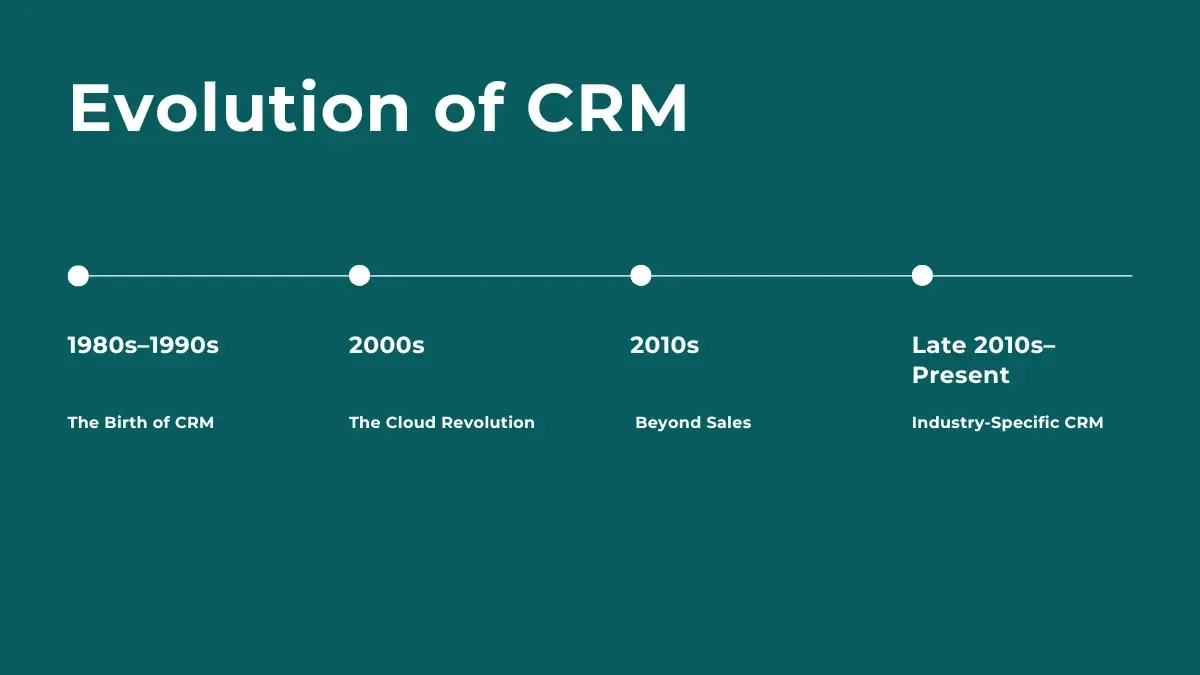
CRM technology has evolved significantly over the last four decades, transforming from a basic digital rolodex to an operational powerhouse in industries like logistics.
- 1980s–1990s: The Birth of CRM Early CRMs were simple contact databases used by enterprise sales teams to track leads and communications.
- 2000s: The Cloud Revolution Cloud-based CRMs like Salesforce emerged, offering more flexibility, automation, and scalability.
- 2010s: Beyond Sales CRM platforms expanded to include customer service, marketing automation, analytics, and app integrations. Businesses across industries started adopting CRM as a customer-centric operating system.
- Late 2010s–Present: Industry-Specific CRM As industries demanded tailored solutions, CRMs built specifically for logistics and freight forwarding began to appear. These platforms added capabilities like: Freight-specific quoting tools, shipment count and lane tracking, TMS and accounting integrations, and logistics-specific dashboards.
- Today: CRM as Core Logistics Infrastructure In modern shipping operations, CRM is no longer optional. It powers real-time collaboration, automated workflows, proactive customer updates, and performance tracking—all essential in a competitive supply chain environment.
3. Benefits of CRM in Logistics and Supply Chain Management
The logistics industry involves a wide range of stakeholders, systems, and workflows. Each segment—from raw material suppliers to final-mile carriers—requires accurate coordination and communication. CRM systems, when designed for supply chain environments, help unify all these interactions under one roof. In this section, we'll explore how CRM adds value to supply chain management, freight brokers, and carriers
3.1. CRM for Supply Chain Management
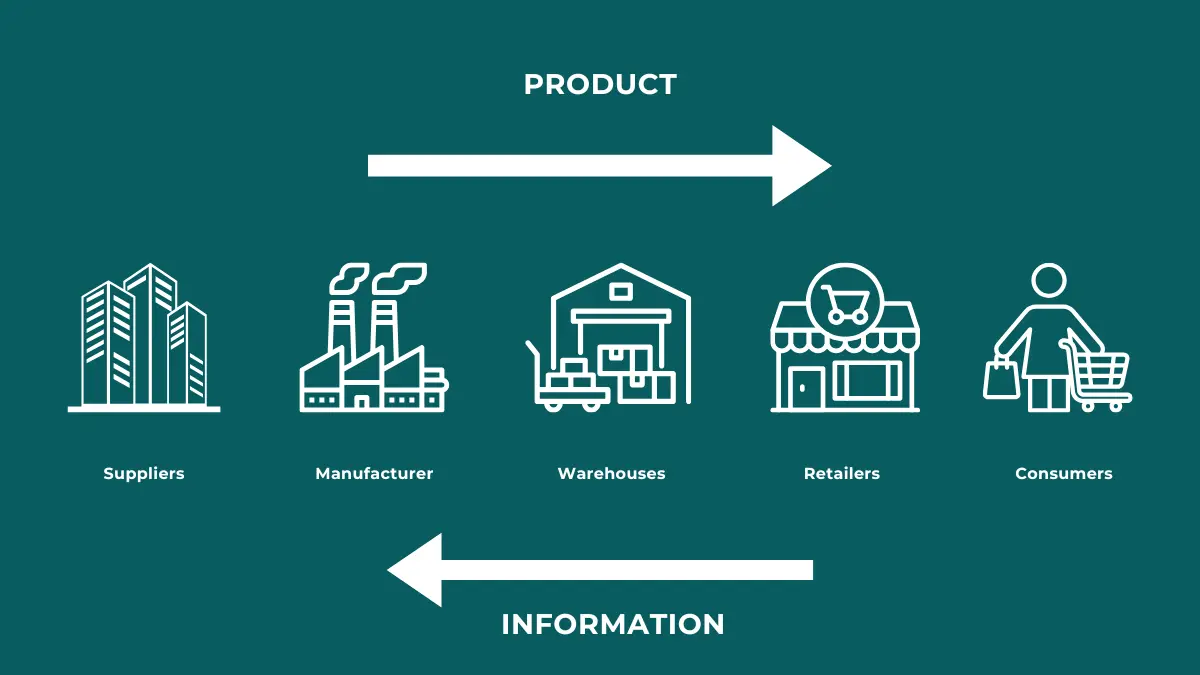
CRM supports supply chain management by acting as the connective tissue between customer-facing departments and backend logistics operations. When customer information, order data, inventory availability, and shipping statuses are centralized in one platform, companies can dramatically improve operational responsiveness.
For example, if a customer service representative receives an urgent delivery inquiry, they can instantly check the order status, shipping progress, and available alternatives—without needing to loop in five different departments. This seamless access improves response time and builds trust with clients.
Moreover, CRM tools enhance forecasting and resource planning by leveraging historical customer data, such as seasonal shipment patterns and order frequency. This allows supply chain teams to prepare for demand surges and prevent stockouts or underutilized capacity. In high-stakes industries such as pharmaceuticals or food logistics, this visibility can also help ensure compliance and reduce spoilage.
CRM platforms also support vendor management by tracking communications with suppliers, documenting contract terms, and ensuring on-time fulfillment from partners. When integrated with TMS or ERP systems, CRM becomes the interface where both strategic and tactical decisions are made.
3.2. CRM for Freight Brokers
Freight brokers thrive on speed, relationship management, and attention to detail. A robust CRM built for brokers functions as more than a digital address book—it is the central command center for managing client requests, carrier relationships, quoting workflows, and service history.
One of the biggest time sinks for brokers is manual quoting. With CRM automation, brokers can generate quotes for multiple freight modes with real-time pricing, reducing turnaround times and increasing the likelihood of winning deals. CRM systems can also flag hot leads or repeat clients with urgent needs, helping brokers prioritize outreach and prevent missed opportunities.
Lead tracking and pipeline management in CRM helps sales managers visualize team performance, win ratios, and quote-to-booking conversions. Meanwhile, built-in reminders and communication logs make it easier to maintain continuity with clients even when personnel change or volumes fluctuate. CRMs also improve broker-carrier coordination by maintaining rate agreements, load history, and performance ratings in a single interface. This transparency allows brokers to choose the most reliable partners and reduce claims or delivery failures.
3.3. CRM for Carriers
While carriers typically concentrate on fleet operations, route planning, and load optimization, CRM tools can give them a competitive edge in customer engagement and strategic growth. For carriers, a CRM can serve as a customer and partner relationship portal, helping manage not only orders but also the people behind them.
For instance, CRM systems enable carriers to profile shippers by frequency, volume, preferred lanes, and margin performance. With this data, carriers can prioritize profitable clients and lanes, tailor their services, and forecast asset requirements more effectively.
CRM also empowers customer service teams by providing instant access to delivery history, previous communications, and exception-handling cases. Instead of reactive service, carriers can adopt a proactive stance—checking in on high-value clients, confirming upcoming loads, and resolving issues before they escalate.
Moreover, CRM platforms can be linked with dispatch and fleet systems, creating a feedback loop between operations and sales. This ensures that business development strategies align with operational capacity, ultimately improving both service quality and asset utilization.
With rising competition and margin pressure, the ability to manage relationships strategically may be the deciding factor between stagnation and growth for many carriers. on operations but can benefit significantly from CRM tools designed to optimize customer and lane management. CRM features for carriers include:
- Tracking client history and booking patterns
- Identifying high-volume or high-margin lanes
- Maintaining communication logs with shippers and brokers
- Syncing dispatch data with sales and support functions
With a CRM, carriers can increase fleet utilization, reduce missed opportunities, and build long-term client relationships.
4. Top CRM Tools for Shipping and Logistics
The market for CRM tools in the shipping and logistics sector has grown rapidly, with platforms evolving to meet the complex needs of freight brokers, carriers, and 3PL providers. Below is a curated list of top CRM solutions that are helping logistics professionals streamline operations, strengthen relationships, and scale their businesses., each offering unique features tailored to different segments of the industry:
4.1 Nutsales
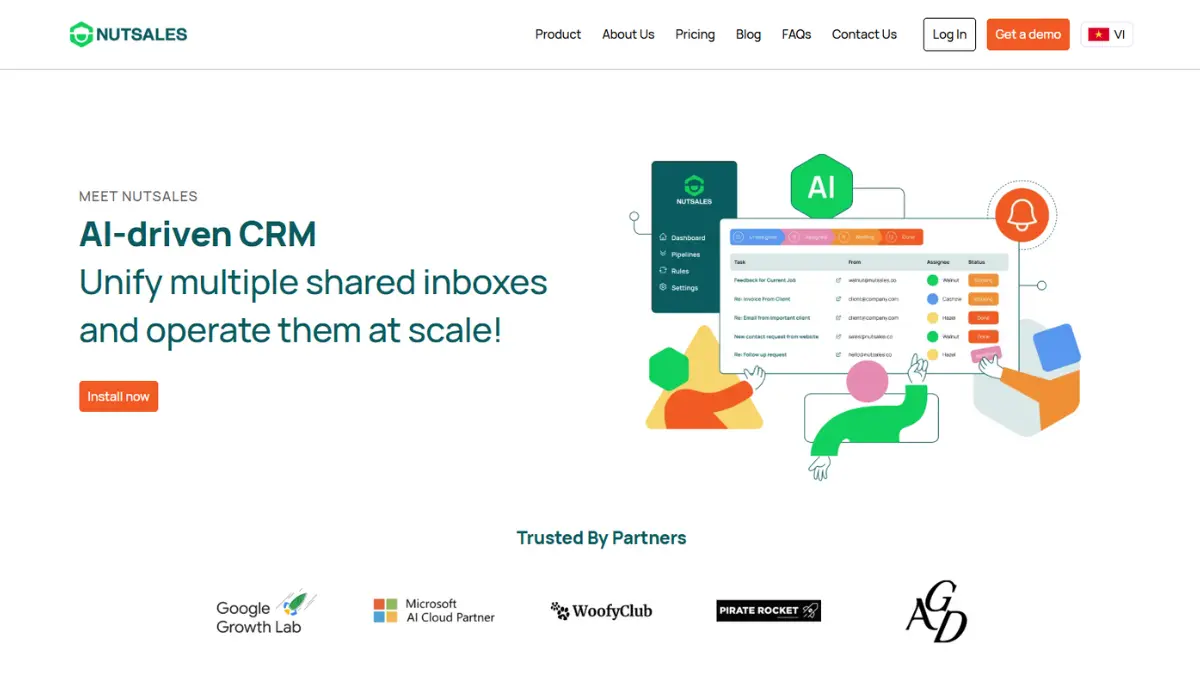
Nutsales is a CRM built with supply chain professionals in mind, tailored for freight brokers, forwarders, and logistics sales teams. It combines pipeline management, lead tracking, shipment insights, communication automation, and AI-powered document handling in one cohesive platform. Nutsales also offers a dynamic collaborative space that enables team members to coordinate in real-time, share updates, and manage complex freight deals more efficiently. Known for its logistics-native features and user-friendly interface, Nutsales is ideal for teams looking to improve coordination and close more deals.
4.2 Walltech

Walltech offers a logistics-centric CRM solution that integrates seamlessly with warehouse systems, TMS, and accounting software. It provides smart dashboards, KPI monitoring, and automation tools to streamline operations for 3PL providers and mid-sized carriers.
4.3 Zebra
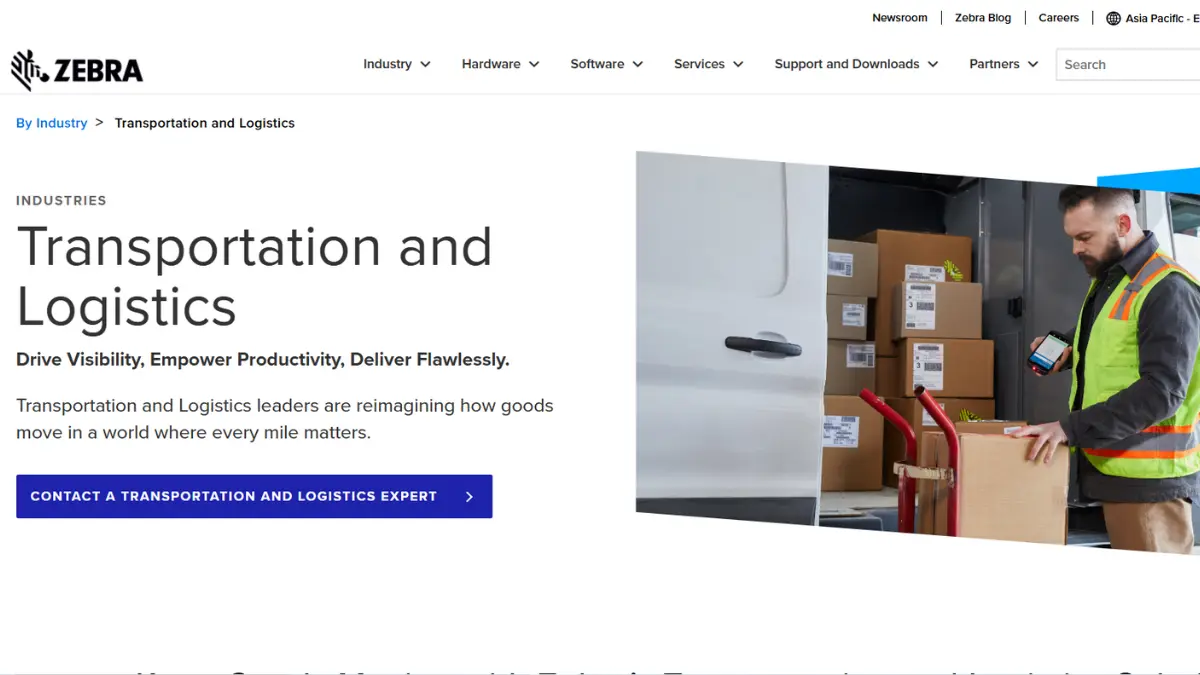
Zebra CRM is designed for fleet-based businesses and carriers. Its strength lies in client profiling, lane profitability tracking, and dispatch visibility. It helps carriers manage repeat business and improve service levels through detailed analytics.
4.4 Pipeline

Pipeline is a sales-focused CRM ideal for freight sales reps and brokers. It offers a clean, intuitive interface and tools for tracking deals, setting reminders, and collaborating with teammates. While not built exclusively for logistics, it works well for freight teams with a strong sales culture.
4.5 HubSpot
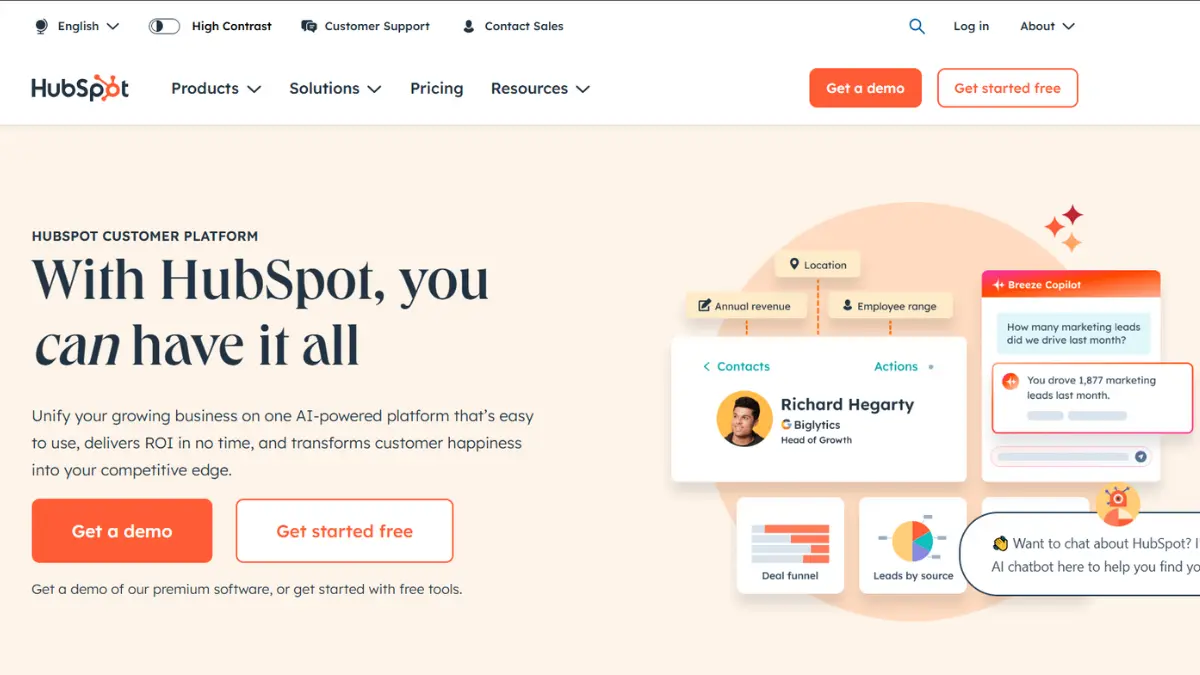
HubSpot CRM is a popular choice for logistics firms seeking marketing automation alongside basic CRM functions. With email tracking, deal pipelines, and task automation, it’s a great tool for companies starting their CRM journey or focusing on lead generation.
4.6 Salesforce
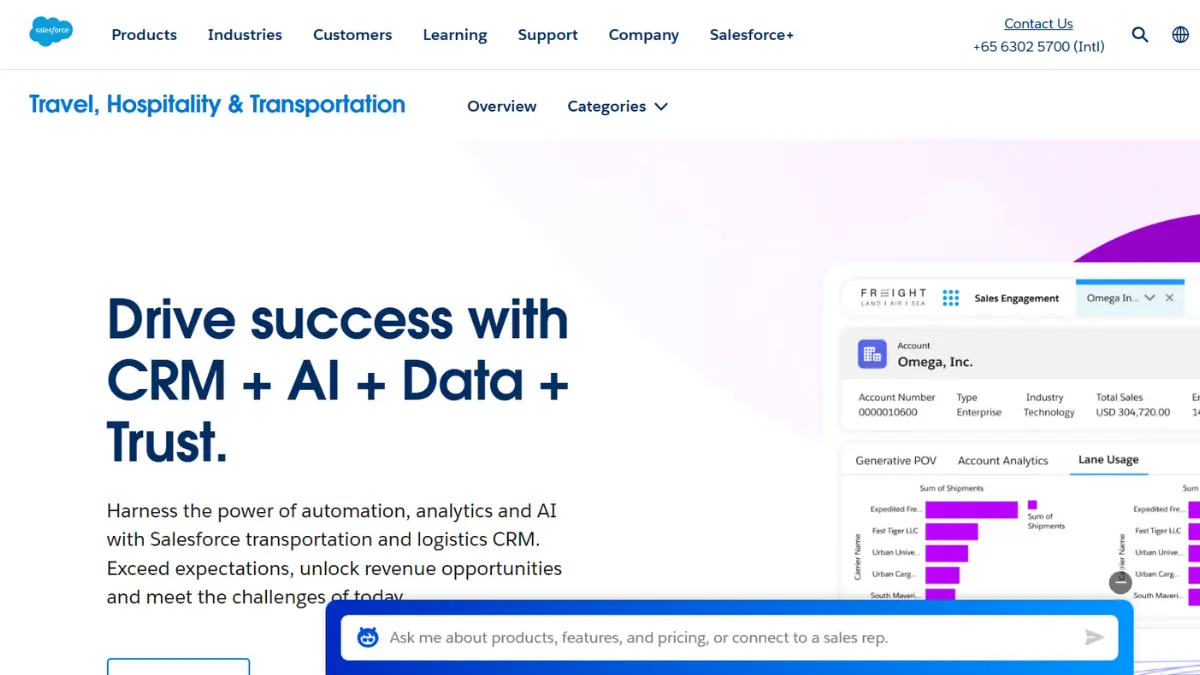
Salesforce is a powerhouse CRM known for its customizability and enterprise scalability. It supports logistics workflows through third-party integrations and custom modules, making it suitable for large freight networks or companies with in-house tech teams.
4.7 Zoho
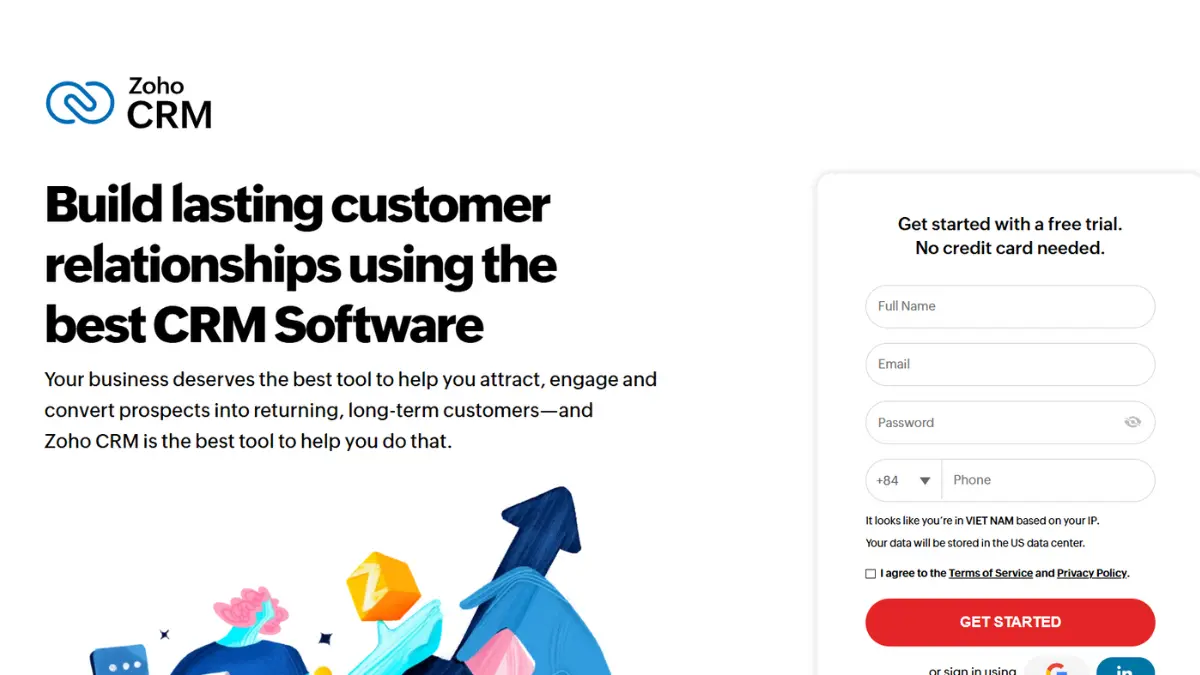
Zoho CRM offers a balance of affordability and flexibility, making it suitable for small-to-midsize logistics providers. It features sales automation, workflow rules, analytics, and app integrations—and can be extended to support logistics-specific tasks.
4.8 Freshsales

Freshsales by Freshworks combines CRM functionality with email, phone, and workflow automation. It's gaining popularity among freight brokers and 3PLs looking for a modern, all-in-one CRM that scales with their team.
5. Tips for Successfully Implementing a CRM in Shipping
Successfully implementing a CRM in the shipping and logistics industry goes beyond simply adopting a new software system. It involves rethinking how your business manages relationships, streamlines communication, and coordinates across complex workflows. Whether you're using a CRM for supply chain management, CRM for freight brokers, or a broader CRM and supply chain integration, strategic implementation is key.
Here are expert-backed tips to ensure your CRM rollout is smooth and impactful:
- Choose a logistics-specific CRM: Avoid the hidden costs and inefficiencies of customizing a generic CRM. Select a platform designed for logistics workflows—one that includes freight quoting, shipment tracking, lane profitability insights, and TMS or WMS integration out of the box. A tailored CRM for freight brokers or carriers will deliver faster ROI and better user adoption.
- Start with a clear implementation roadmap: Before rolling out your CRM and supply chain management solution, define what success looks like. Establish goals such as reducing lead-to-quote time, increasing quote conversion rates, or boosting shipment tracking accuracy. This will help guide your CRM configuration and training strategy.
- Engage cross-functional teams early: A CRM is not just for sales. In logistics, it's a shared platform for customer service, dispatch, operations, and finance. Involving all departments ensures that your CRM and supply chain workflows reflect real business needs and foster stronger collaboration.
- Integrate with your core platforms: To maximize efficiency, your CRM should integrate seamlessly with your TMS, WMS, accounting tools, and communication systems. This reduces data duplication and ensures that your CRM for supply chain management becomes the central hub for decision-making.
- Train for adoption, not just usage: Your team needs more than a tutorial. Provide tailored onboarding that focuses on real-life scenarios—like quoting a multi-modal shipment or updating a customer on a delay. Continuous training ensures that your CRM evolves with your operations.
- Leverage CRM analytics: Use reporting dashboards to monitor CRM usage and performance. Spot trends in sales performance, lane profitability, customer retention, and service delays. These insights allow you to refine your CRM and supply chain management strategy over time.
- Automate intelligently: CRMs offer automation tools that can simplify workflows—automated follow-ups, quote reminders, customer onboarding emails, and more. The goal is to free up time for high-value client engagement without losing consistency or speed.
In short, implementing a CRM is a transformative step for any logistics business. Done right, it will enhance visibility, reduce manual effort, and create a more agile and customer-centric operation—everything a modern supply chain demands.
CRM in shipping is no longer just a luxury or a sales tool—it’s the foundation for scalable, efficient, and customer-centric logistics operations. From freight brokers to carriers to global supply chain managers, CRM helps logistics teams work smarter, respond faster, and build stronger relationships.
Whether you're quoting freight, managing clients, or optimizing routes, the right CRM can make all the difference. Now is the time to move beyond spreadsheets and legacy systems—and invest in the future of shipping with CRM.
